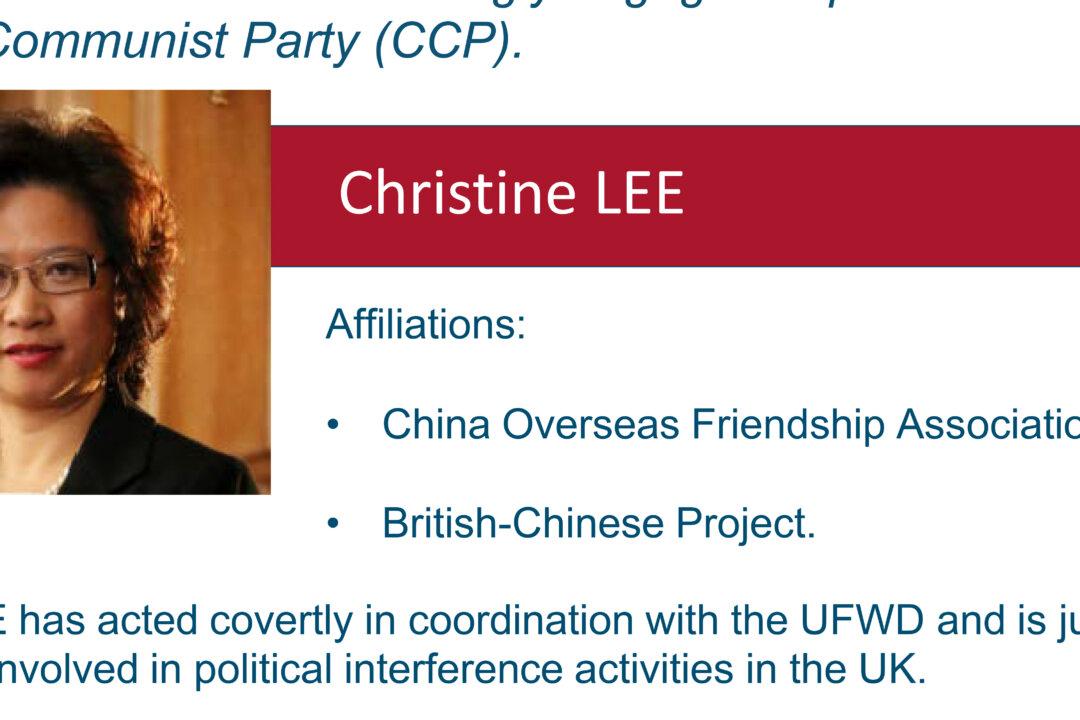The British government has been urged to investigate claims made by Chinese communist agent Christine Lee that she successfully secured changes to UK immigration legislation in 2006 by exerting influence in the House of Lords, the second chamber of the UK Parliament.
The UK’s MI5 security agency took the unusual step of sending an alert to Parliament on Jan. 12 warning that an individual named Christine Ching Kui Lee has been “knowingly engaged in political interference activities on behalf of the United Front Work Department (UFWD) of the Chinese Communist Party (CCP).”





